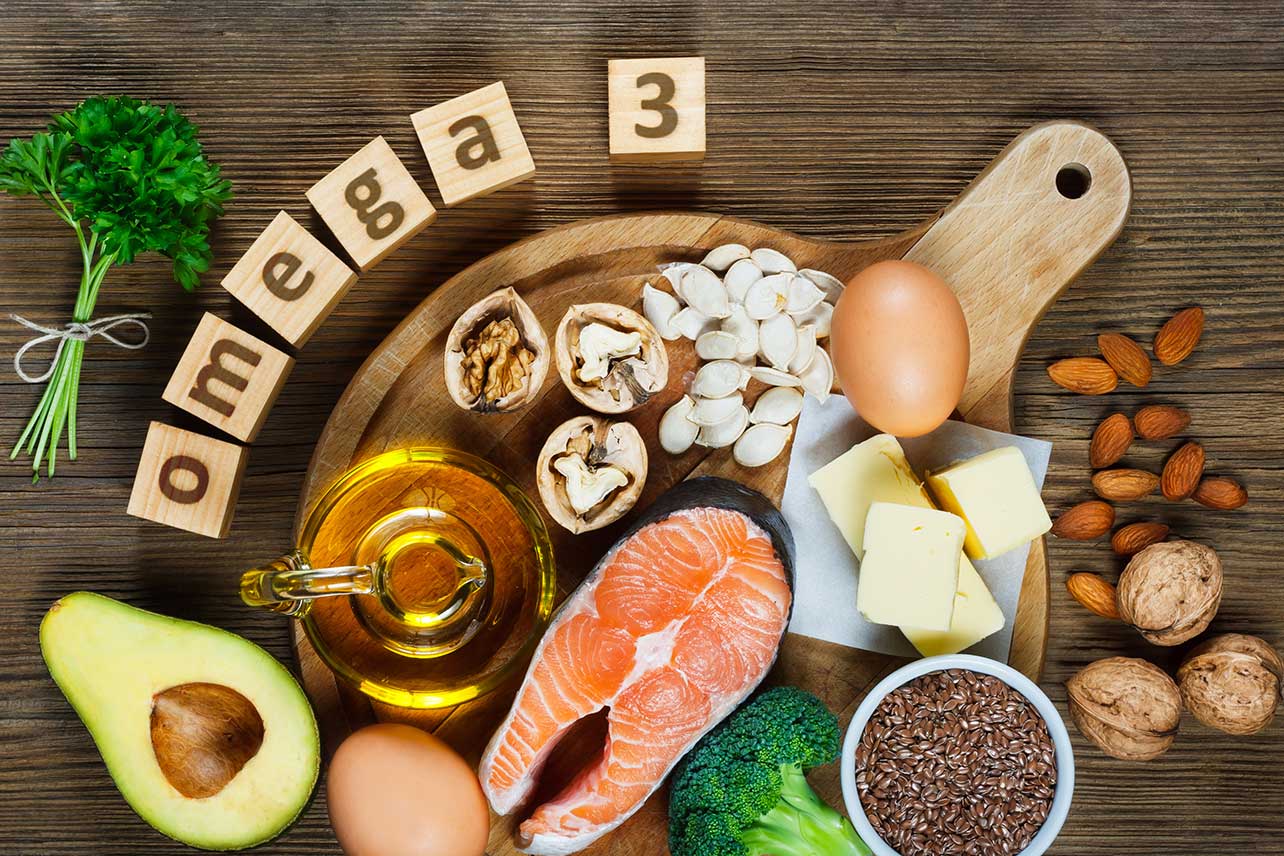
Plant sources of omega-3 acids
If you are not on a diet, you are likely getting a lot of omega-3 fatty acids (a type of "good" fat) from seafood like salmon, mackerel, and oysters, with the option of taking cod liver supplements or fish oil as well, but If you are a vegan or vegetarian, it can become more difficult to get the recommended daily intake of omega-3 acids.
But, rest assured! For vegetarians, or for anyone who does not eat seafood or take supplements on a regular basis, there are many plant sources of omega-3 fatty acids.
What are omega-3 acids?
For a quick recap, here's an explanation of what are omega-3 fatty acids, exactly, and why are they so essential to our health?
Fats are one of the three main nutrients (in addition to protein and carbohydrates) that are essential for cell membranes, hormone production and energy storage. Within the "fatty family" we have saturated, monounsaturated and polyunsaturated fats. Omega-3 fatty acids are found under the umbrella of polyunsaturated fats, and there are four main omega-3s:
Alpha-linolenic acid (ALA)
Eicosapentinoic acid (EPA)
Docosapentaenoic acid (DPA)
Docosahexaenoic acid (DHA)
This group of fats has been extensively studied and has shown its ability to reduce triglyceride and cholesterol levels in the blood, which may reduce the risk of blood clots, lower blood pressure and reduce inflammation, and it is beneficial to add a large amount of these fats to our diets.
Of omega-3 acids, ALA is essential, and this means that we must eat it in food, and it is found in various seeds and legumes, and although there is no recommended amount in the diet of ALA, the daily recommended amount according to the National Academy of Medicine is 1,100. mlg for adult women and 1,600 for adult men. As for the other acids - EPA, DPA and DHA - the human body is a very amazing system that can convert ALA into them. Sounds like a very nice, harmless system, right? not exactly. The tricky part is that the fatty acids EPA and DHA, which are present in large quantities in fish, are not made from ALA at such high rates, as only 2-10% of it is converted into them.
This is not a big problem for those who eat seafood, but it is different for vegetarians or for those who take fish oil capsules and are looking for an alternative, so the question remains, if vegetarians do not eat fish, is there a way that they can get EPA and DHA from plants? Moreover, what foods can they give a high priority to because they contain ALA and that will convert at least some of it into EPA and DHA?
Plant sources that contain ALA
Fortunately, ALA is found in plants, so vegans, vegetarians, and meat eaters should add these foods to their shopping lists weekly and add them to their meals and snacks daily. Here are the best sources of ALA and ways you can follow in your diet:
Flaxseed and flaxseed oil
Flax seeds are one of the most important sources of ALA, and these seeds are best absorbed when ground, so either you buy whole seeds and grind them yourself as needed, or you buy ground flax seeds and keep them refrigerated to preserve their freshness, and you will notice that these seeds are super nutritious. Included in countless products, from crackers to granola.
Flaxseeds can be cold pressed and converted into high-quality oil, which is useful for salad dressings or as an oil to be added to roasted vegetables, and you can also find flaxseed oil capsules, but note that depending on its concentration, you may take 2-8 capsules per day to get the recommended dose.
Chia seeds
These great seeds that swell when added to liquid are a great source of omega-3s and can be easily sprinkled over smoothies or overnight oatmeal.
Nut
Walnuts contain an ample amount of omega-3s, and they definitely don't smell like fish oil supplements. Store walnuts in the fridge to preserve healthy fats and enjoy walnuts in a cereal bowl or as a crunchy garnish for soups.
Wheat germ
Alternative flour is becoming popular nowadays, which is why you may see more wheat germ in baking recipes, it is not gluten-free but does contain the benefits of unsaturated fats and other anti-inflammatory nutrients such as vitamin E, zinc and magnesium.
Omega-3 supplements for vegetarians are often derived from algae and mixed with oil, usually it is sunflower oil rich in omega-6, which is packaged in the form of a softgel, and only some supplements contain DHA, and the dose is usually two capsules that provide the body with 500 mg of DHA, While others provide a mixture of the two omega-3 acids, the amount of EPA is slightly less than DHA.
Keep this in mind when purchasing supplements, and be sure to read the entire ingredient list as some of them may contain gelatin, which will not be suitable for vegetarians.
